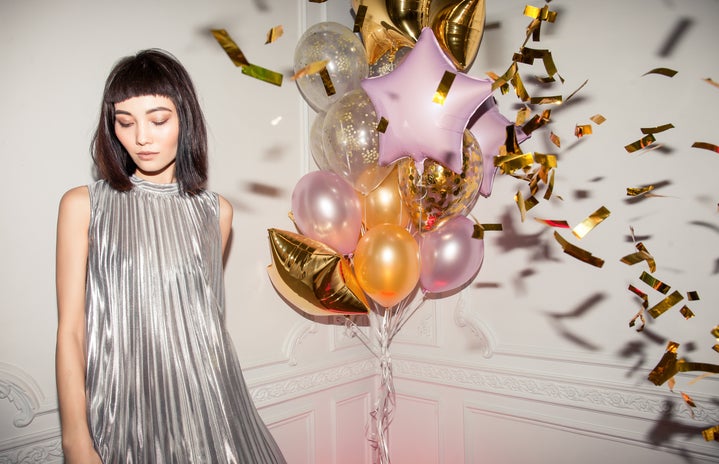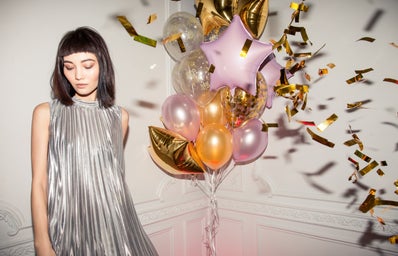On October 7th, 2021, I turned twenty-five years old. As soon as the clock struck 12:00 midnight, the power went out, the water stopped running, and a swarm of locusts engulfed the Lower Mainland. Obviously, I’m joking, but from the anxiety I felt in the weeks prior to my twenty-fifth birthday, you’d think otherwise.
When you’re in your late teens/early twenties, you think that youth is indispensable and a permanent state of being. It’s easy not to take life seriously because it doesn’t have any expectations of you just yet. I call that period of my life my “sleeping years”. Although I went to college, I didn’t know what I wanted to study or what I wanted to do with my degree once I’d completed it. Although I worked many jobs, they served no purpose other than providing me with employment and a regular income. The highlights of my hedonistic lifestyle were parties and club nights on the weekends or an annual vacation. I spent my free time comparing myself to other people online or consuming media to stifle any original thoughts I might’ve had. I was young and carefree and went through little personal growth.
At the beginning of 2020, I was just a few months into twenty-three. Perhaps if I were younger, I would’ve seen the early days of the COVID-19 pandemic as a staycation of sorts. But because I had arrived at an age where more and more people began expressing disbelief when I told them how old I was, it suddenly dawned on me: adulthood was not some abstract, faraway concept, but rather, where I had been for some time now, whether I was aware of it or not. To my horror, I realized that – mathematically speaking – at twenty-three, the first act of your twenties is over. I immediately vowed to spend the rest of 2020 playing catch-up, determined to enter the next stage of my life as a genuine, bonafide Adult™. I even bought a blazer.
But as we all know, you can’t get your life together overnight. Trying to make up for years of growth was needlessly exhausting, mentally and emotionally. I was like a dog chasing my own tail, tiring myself out for no reason but to meet expectations bestowed upon me years ago. Eventually, I had to ask myself why these deadlines mattered so much. It all pointed towards a deep-seated fear of being old.
From gifted kids to Fortune magazine’s annual “40 Under 40” lists, our society has a deeply-ingrained obsession with youth that’s hard to shake. Firstly, we are told that life should be measured in milestones – once you study abroad, you’ll be happy; once you graduate, you’ll be happy; once you get married, you’ll be happy – but these events ought to occur at very specific times in your life, otherwise it’s not as great of an accomplishment. Think of it like handing in a term paper late; you’ll still pass the class, but you get points deducted for each day you fail to turn it in. This kind of thinking is the ultimate trap, because logistically, it keeps us in a cycle of always chasing after the next thing. If you’re always looking towards the future, how are you ever going to be satisfied with the present?
As an added bonus, women are also taught that our beauty has an expiration date. We are encouraged to do anything and everything we can to stay youthful, otherwise we will turn into decrepit old hags like Mother Gothel after Rapunzel’s hair loses its magic (well-groomed men, on the other hand, turn into what the kids call “zaddies”). I can’t count the amount of posts I’ve seen praising female celebrities for looking younger than their actual age. Aside from the fact that celebrities have the money, time, and access to the best cosmetic procedures, products, and assistants to edit every selfie shared online, it’s high time we dispel the notion that beauty and youth are synonymous; not just because it’s ridiculous and impractical, but because aging is not a curse.
Yes, it is true that you physically change as you get older; my back aches if I don’t stretch properly and there’s lines in my forehead that weren’t there two years ago. But what they don’t tell you is that you change internally, too. I’m not as sensitive or self-conscious as I used to be. The things that I used to obsess over don’t really bother me anymore. To put it more succinctly: it’s just not that deep. Instead of over-analyzing every little thing that happens to me these days, I immediately think, “That was weird, but it’s not that deep.” And I move on with my life, because I’m 25 now and I don’t have any spare time to waste on things that don’t serve me.
It sounds cringey, but I have an old Pinterest board entitled, “someday”, that roughly illustrates what my teenage self had once envisioned for my adult self. Apparently, I wanted a Breaking Dawn: Part 1-inspired wedding (boomer alert!), a stark-white Craftsman style house with a home office for my unspecified corporate job, and two or three babies decked out in OshKosh B’gosh. While I would be fortunate to have any of those things, I don’t really aspire to any of it now. I honestly wonder if I ever did, or if those were just some of the things that society prescribes to us when we search for that ever-elusive happiness. I think there’s a new generation of women who are learning much earlier in life that the things we are taught to strive for won’t automatically make us happy. I feel blessed to have come to the realization that – despite what my Pinterest account would have you believe – I actually don’t aspire to traditional domesticity, and I’m glad that I learned this before I made any serious attempts to attain it.
As I blew out the “25”-shaped candles on my birthday cake, I had a small epiphany: adulthood is not about collecting milestones, it’s about celebrating all the joys in life, whether big or small. You don’t need to wait until you get into grad school or buy a home or have a baby to feel like you accomplished something. It’s when we let go of these fake deadlines that we really start to grow. Your age is an asset, not a liability. Some people don’t make it to twenty-five, twenty-six, twenty-seven, etc. These numbers do not serve as reminders of all the things you failed to achieve, but of the possibilities that lie ahead once you’ve made peace with time.
I’ll end with a link to “Palette”, a 2017 song by one of my favourite artists, Korean singer-songwriter IU, and the inspiration behind this essay’s title. In the chorus, she sings:
I like it, I’m twenty five
날 좋아하는 거 알아 (I know that you like me)
Oh, I got this, I’m truly fine
이제 조금 알 것 같아 날 (I think I know myself a little bit now)
She’s totally right – I know myself a little bit now.


